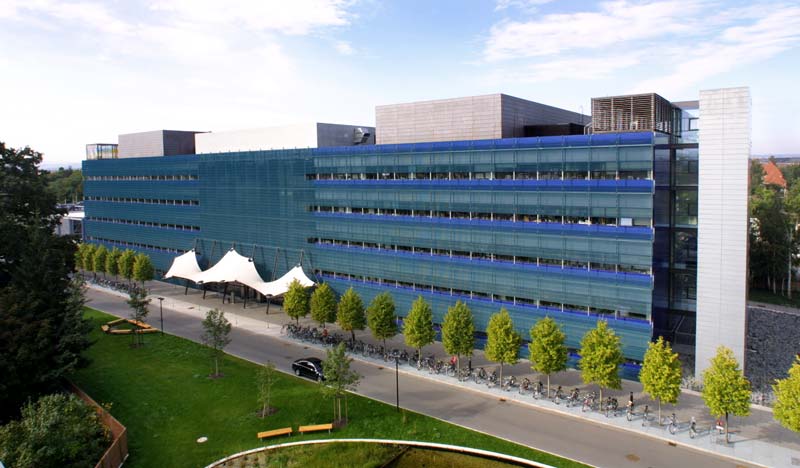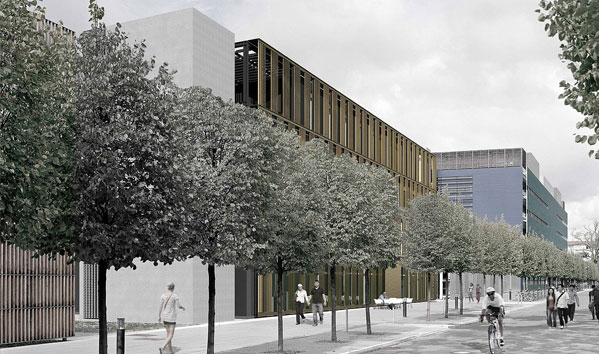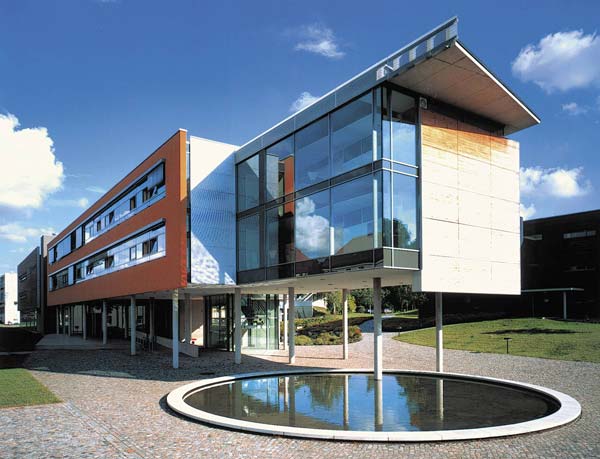Call is closed
Our Locations
The IMPRS-CellDevoSys places PhD students in research groups based at three sites: the Max Planck Institute of Molecular Cell Biology and Genetics (MPI-CBG), the Center for Systems Biology Dresden (CSBD), and the Max Planck Institute for the Physics of Complex Systems (MPI-PKS).
Max Planck Institute of Molecular Cell Biology and Genetics (MPI-CBG)

The Max Planck Institute of Molecular Cell Biology and Genetics (MPI-CBG), founded in 1998, does pioneering work in the field of basic research. 500 curiosity-driven scientists representing 50 nationalities ask: How do cells form tissues? Investigators research the molecular principles underlying morphogenesis, such as regulation of size and shape, and how the morphology of cells and tissues emerges from the interactions between individual molecules and cells. The research programs span multiple scales of magnitude, from molecular assemblies to organelles, cells, tissues, organs, and organisms.
Center for Systems Biology Dresden (CSBD)

The Center for Systems Biology Dresden (CSBD) houses an interdisciplinary team of physicists, computer scientists, mathematicians, and biologists. The center's mission is to develop theoretical and computational approaches to biological systems across different scales, from molecules to cells and from cells to tissues. Starting from primarily observations of spatio-temporal phenomena, investigators seek multi-scale models that can explain the principles by which a system functions and that predict how it reacts to perturbations. The center combines a unique blend of state-of-the-art genomic technologies and quantitative microscopy, with computer vision, computational science, and theoretical physics.
Max Planck Institute for the Physics of Complex Systems (MPI-PKS)

The Physics of Complex Systems, as a relatively young field, is developing rapidly and constantly. The goal of the Max Planck Institute for the Physics of Complex Systems (MPI-PKS) is to contribute to the research in the field of complex systems in a globally visible way and to promote it as a subject. Furthermore, aims to pass on innovations in the field of complex systems as efficiently as possible to the young generation of scientists at universities. The concept rests on two pillars: in-house research and a program for visiting scientists.